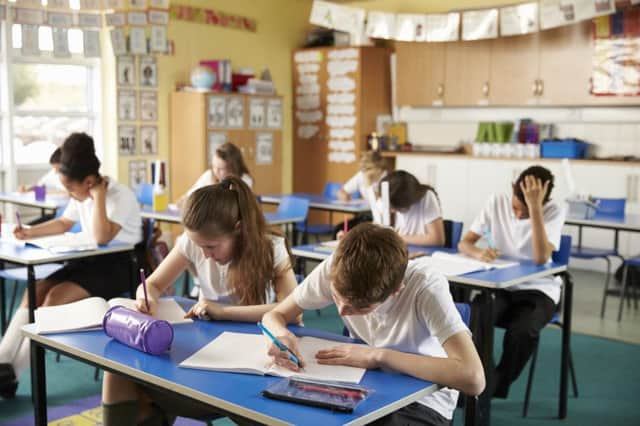Leader comment: Scotland has to learn vital lesson


Education has risen to the top of the political agenda, and a report yesterday throws in to sharp relief why it is right that it should be, and exactly why that attainment gap must be closed.
The results from a groundbreaking study of young adults aged 16-24 in Scotland by the University of Glasgow showed that unemployed young adults, the so-called Neets – not in education, employment or training – are significantly more likely to be current smokers, not participate in sport and have an “unhealthy” BMI, thereby greatly increasing their chances of cancer.
Advertisement
Hide AdAdvertisement
Hide AdThe report quite starkly states that the likelihood of becoming Neet is greater in socioeconomically-disadvantaged groups, and interventions to discourage unhealthy behaviours in Neets may contribute to a reduction in health inequalities.
Those required interventions might take a variety of forms, but it is widely accepted that a very effective way of transforming a child’s prospects is to make sure that they get the education they need.
The closing of the attainment gap is something that the first minister Nicola Sturgeon has put right at the centre of her political agenda. When she unveiled her government’s priorities last May, she said that the “defining mission” of her administration was to improve education,
To show she was serious she moved the well-respected Deputy First minister John Swinney to the post of education secretary. But the news was not good. In December last year Scotland’s schools recorded their worst ever performance in the Programme for International Student Assessment (Pisa) figures. Scotland’s scores for maths, reading and science all declined for the first time since the tests began in 2000.
It is true that the figures were compiled from data taken two years previously, but Mr Swinney at the time said the results made uncomfortable reading.
Then last month researchers from the Sutton Trust think tank found a gap equivalent to more than two years in schooling for science, reading and maths between pupils from less well-off backgrounds compared to their less disadvantaged peers.
Ms Sturgeon insists her reforms are narrowing the gap between pupils from different backgrounds and points to additional cash going to schools as part of the attainment fund, which will see £120 million given directly to head teachers.
This week the government announced a delay to its Education Bill. The harsh truth is that children get one chance, and that can pass quickly and go forever, and has lifelong lasting effects. Urgent action is needed.